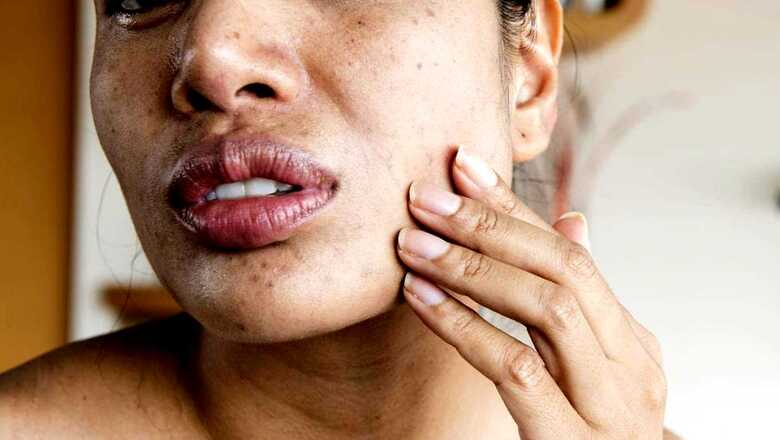
views
Kick-starting your day with medications and ointment to manage skin conditions sounds like a dreadful task. Well, this is exactly what people suffering from atopic dermatitis face. The chronic inflammatory skin condition poses a bunch of challenges for people affected by it, considering the lifestyle changes it brings. Patients experience extreme discomfort, making it really challenging for people to concentrate on tasks and even sleep.
What is Atopic Dermatitis (AD)?
It is a chronic inflammatory skin condition that is characterised by periods of flare, remission, or disease improvement. Atopic Dermatitis (AD) affects up to 20% of children and 3% of adults around the world.
Symptoms of Atopic Dermatitis (AD)?
The symptoms associated with AD are red, dry, itchy, flaky, and cracked skin. At times, the pores ooze fluid or blood. The disease can cause a lot of other psychological conditions in patients, like lack of sleep, low self-esteem, depression, and can also degrade the quality of life. If any child is facing this illness, his school performance or work productivity can get affected.
How Atopic Dermatitis affects mental health?
Assistant Professor, CNMC & Assistant Editor, IJD & IJSA Dr Abhishek De told Hindustan Times that on a day-to-day basis, people with uncontrolled, moderate-to-severe atopic dermatitis face several challenges. The disease is uncertain following which it can lead to flare-ups, which causes anxiety in the patients and also prevents them from living fulfilling lives.
As one struggles falling asleep due to the itching and pain, it gives birth to sleep-related problems. Lack of sleep due to skin irritation or itchiness can further affect your mood and behaviour. Certain behaviour changes are experienced in the patient, like loss of concentration at work or school.
Notably, AD can only be contained and not cured, hence, it is important to consult a doctor and start treatment without any delay. The timely treatment can help in managing the condition better instead of dealing with it at a later stage when the flare-ups get severe.
According to the expert, AD can especially affect the confidence of a school-going child. Children suffering from this illness might feel lonely and secluded. The child can also encounter bullying and teasing from their peers which could leave an emotional scar on them. In case your child is developing symptoms of anxiety and depression because of AD, it is suggested that you seek counselling.
Read all the Latest Lifestyle News and Breaking News here




















Comments
0 comment